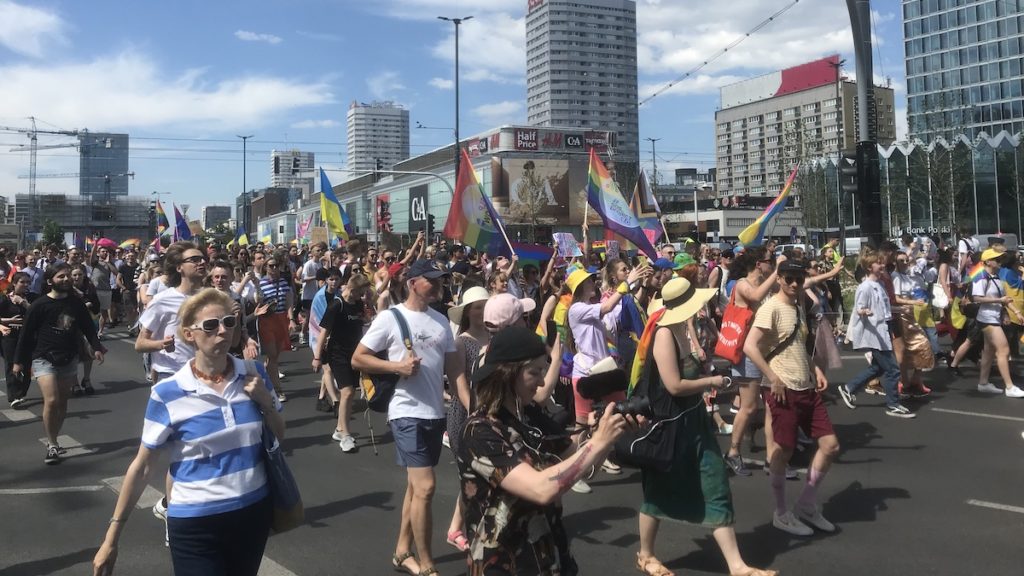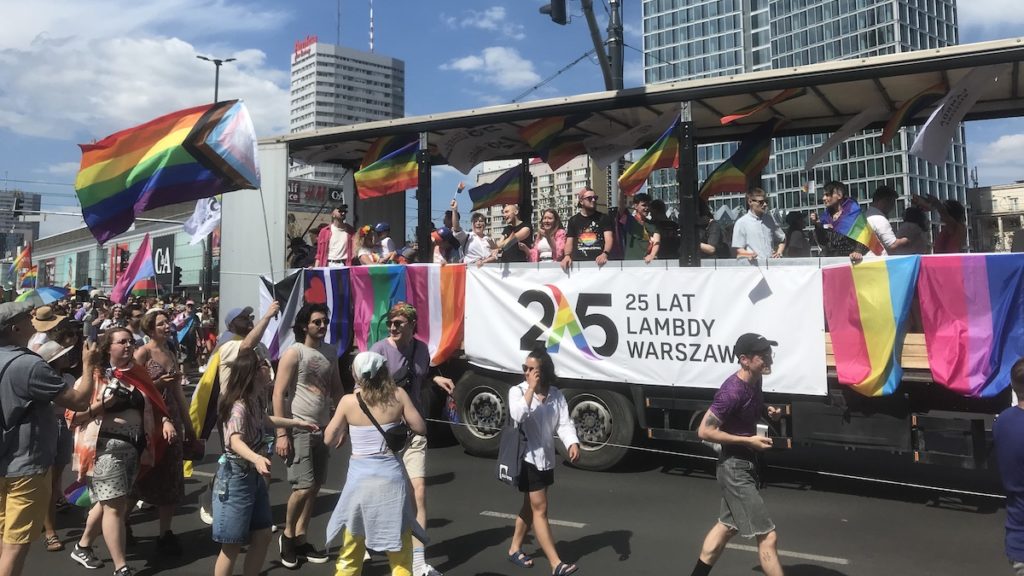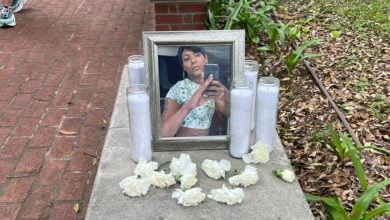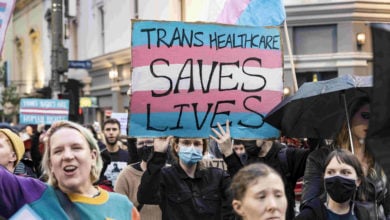Tens of thousands of Poles and international attendees rallied in Warsaw on June 25 for the annual Equality Parade to demand equal rights for LGBTQ people across the country. The Equality Parade is one of the largest LGBTQ gatherings in Central/Eastern Europe and attracts thousands of people every year in a country where basic rights for LGBTQ people do not exist and LGBTQ people, particularly in smaller cities and the countryside, face routine discrimination and violence.
The march kicked off outside the Palace of Culture and Science and continued throughout downtown Warsaw. Among the Equality Parade’s demands were protection against discrimination, the recognition of transgender rights, increased protection against hate speech and hate crimes, marriage equality, welcoming refugees, competent sexual education in public schools, gender equality and environmental protection. This year, the parade was organized with Ukrainian LGBTQ activists as a joint Warsaw/Kyiv parade with participation of many Ukrainians due to the inability to hold Kyiv Pride in Ukraine due to the ongoing conflict.

Thanks to decades of struggle, a bare minimum level of acceptance is taken for granted in the United States, particularly in urban areas, but this is not yet the case in Poland. According to a poll from last year, support for marriage equality is around 28%, while 33% of Poles believe the current laws which do not recognize civil unions or marriage equality should remain. Most Poles, particularly those under the age of 30 and those who lean left, minimally support civil unions.
Since the collapse of socialism in the late 1980s, Poland has developed along contradictory, capitalistic lines. Over 700,000 Poles emigrated to the United Kingdom to find stable employment and send remittances back home. Far-right nationalism and interference from the Catholic Church in the country’s political life are common.
Outside of major cities, patriarchal, homophobic and transphobic values are rampant. Over 100 municipalities, mostly in the southeastern part of the country, declared themselves “LGBT Free Zones” where public displays of LGBTQ pride are banned, and LGBTQ individuals are stigmatized, somewhat akin to Florida’s recent “Don’t Say Gay” law.
Unable to solve the country’s myriad economic and social crises, the Polish ruling class, and the ruling right-wing Law and Justice Party in particular, capitalize on these reactionary values to win votes. Polish President Andrzej Duda went so far to claim, “LGBT is not people, it’s an ideology which is worse than Communism.” While Law and Justice claim to defend the Polish nation, they oversee an economy with some of the lowest wages and protections for workers in Europe and constantly abandon the country’s sovereign interests for the sake of U.S. and Western European capitalists, ratifying policies benefiting U.S. imperialism.

Though the U.S. claims to support LGBTQ rights globally, this support is selective and contingent upon economic interests. The U.S. mass media vilified the Russian government for passing homophobic laws while the U.S. government maintains close diplomatic and political relations with the Polish government. Right-wing outlets openly spew homophobic and transphobic rhetoric, while liberal outlets preach a kind of both sides “free speech,” which accommodates bigoted viewpoints as “harmless opinions.”
Warsaw’s Equality Parade is a stinging rebuke to the country’s homophobic and transphobic attitudes and upholds the legacy of struggle ushered in by the Stonewall Rebellion. The thousands of people who poured into the streets of Warsaw, both LGBTQ people and straight allies, are slowly but surely changing popular opinion in a deeply conservative country. From Poland to the U.S., the recent Supreme Court ruling allowing the re-criminalization of abortion and the persistence of exclusionary homophobic and transphobic laws demonstrate that only militant, united struggle in the streets will help us win the societies we deserve with equal rights for all.





